SAARC - for sustaining regional collaboration
By Dhaneshi Yatawara
[email protected]
Bangladeshi President Ziaur Rahman made the first proposal for
regional cooperation in May 1980 emphasising the need to evolve
international realities.
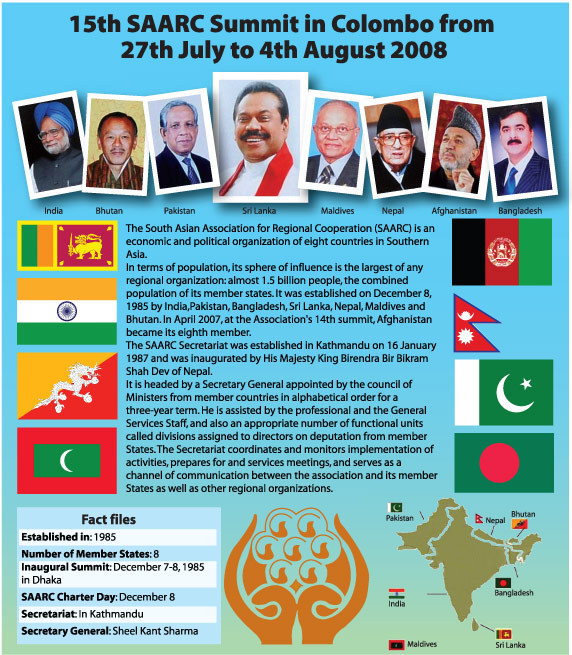
The intention of forming this South Asian alliance, as the Preamble
to the SAARC Charter says “We, the Heads of State or Government of
Bangladesh, Bhutan, India, Maldives, Nepal, Pakistan and Sri Lanka
‘Desirous of promoting peace, stability, amity and progress in the
region through strict adherence to the principles of the United Nations
Charter and Non-alignment, particularly respect for the principles of
sovereignty, equality, territorial integrity, national independence,
non-use of force and non-interference in the internal affairs of other
States and peaceful settlement of all disputes’.
Moreover, the cooperation of the SAARC is also based on broader
principles of respect for sovereignty, equality, territorial integrity,
political independence, noninterference in internal affairs of the
Member States to mutual benefit.
Decisions are taken on the basis of unanimity and bilateral and
contentious issues are excluded from the deliberations of SAARC. Heads
of States or Governments are the highest authorities of the Association.
The SAARC Charter provides that the Heads of States or Governments shall
meet once a year or more often as and when considered necessary by the
Member States.
The country which hosts the Summit holds the Chair of the
Association. The Association also convenes meetings at Ministerial level
on specialised themes. The Council of Members comprises Foreign
Ministers of all Member States.
The Council is responsible for formulating policies, reviewing
progress, deciding on new areas of cooperation, establishing additional
mechanisms as deemed necessary, and deciding on other matters of general
interest to the Association. The Council meets normally twice a year and
may also meet in extraordinary sessions by agreement of Member States.
The standing Committee
Comprising Foreign Secretaries of the SAARC countries is entrusted
with the task of overall monitoring and coordination of programs,
approving of projects and programs, and the modalities of financing,
determining inter-sectoral priorities, mobilising regional and external
resources, and identifying new areas of cooperation.
The Standing Committee is authorised to set up Action Committees
comprising Member States concerned with the implementation of projects
involving more than two but less than seven Member States. (Article VII
of the SAARC Charter).
|
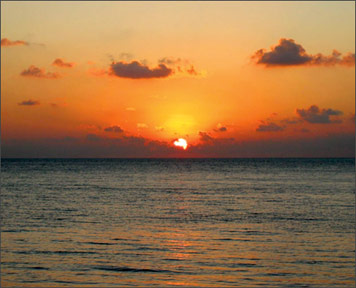
Sunset in Maldives |
Usually this Committee meets twice a year preceding the Council of
Ministers and submits its reports to the Council of Ministers. It may
also meet in special session as and when necessary by agreement among
Member States.
In order to determine the potentials and scope of regional
cooperation, formulation of programs and preparation of projects the
SAARC Technical Committees are set up.
|
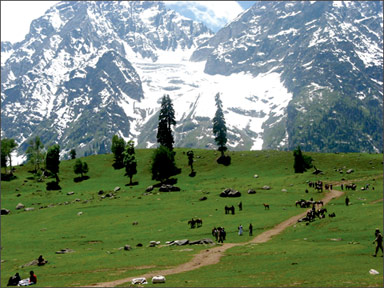
Beautiful Kashmir |
In addition a committee is responsible for the determination of
financial implications of sectoral programs, formulation of
recommendations regarding apportionment of costs, implementation and
coordination of sectoral programs, and monitoring of progress in
implementation.
The Committee of Economic Cooperation consists of Secretaries of
Commerce of Member States and it promotes regional cooperation in the
economic field.
The Agreement on SAARC Preferential Trading Arrangement (SAPTA) was
signed in Dhaka during the 7th SAARC Summit, in 1993.
It aims to promote and sustain mutual trade and the economic
cooperation among the South Asian States, through exchanging
concessions.
Later at the 12th SAARC Summit held in Islamabad, in order to move
towards a South Asian Economic Union the SAARC Member States signed the
Agreement on SAARC Free Trade Area (SAFTA) on 6 January 2004.
|
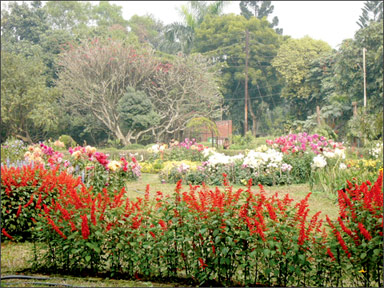
Bloomed Bangladesh |
This came into force on 1 January 2006. SAFTA has six core elements
covering trade liberalization programme, rules of origin, institutional
arrangements, safeguard measures, special and differential treatment for
least developed countries, and dispute settlement mechanisms.
The signing of the Social Charter by the Heads of States and
Governments at the same SAARC Summit in 2004 promoted the welfare of the
South Asians accelerating economic growth and social progress through
poverty alleviation.
Improving health conditions of peoples, human resource development,
empowerment of women, and providing welfare to the children are the
other aspects of the Charter. Although the Social Charter is not a
binding document, it underpins the SAARC Charter objective of ‘providing
all individuals the opportunity to live in dignity and to realise their
full potential’.
High Commissioner for Pakistan Shahzad A. Chaudhry
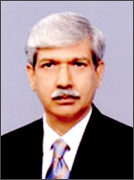 Pakistan looks forward to the forthcoming SAARC Summit with immense
anticipation. The Summit comes in the backdrop of huge challenges for
the countries of the SAARC region in the form of food and energy
securities, poverty alleviation and the menace of terrorism afflicting
all our nations. Pakistan looks forward to the forthcoming SAARC Summit with immense
anticipation. The Summit comes in the backdrop of huge challenges for
the countries of the SAARC region in the form of food and energy
securities, poverty alleviation and the menace of terrorism afflicting
all our nations.
Joint efforts and strategies will help us face upto contemporary
issues.
It will also be an opportunity for the leadership of these nations to
interact for mutual good, and forge stronger ties to the benefit of
their peoples, and in developing a consensus towards their
socio-political and socio-economic uplift.
Bangladesh High Commissioner Md. Shahdat Hossain
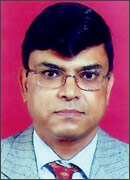 In the 15th SAARC Summit our leaders will give appropriate guidelines
to harness the benefit of all potential fields of cooperation among the
South Asian countries. It is time that we pledge ourselves to work
harder for regional cooperation. In the 15th SAARC Summit our leaders will give appropriate guidelines
to harness the benefit of all potential fields of cooperation among the
South Asian countries. It is time that we pledge ourselves to work
harder for regional cooperation.
Undoubtedly, SAARC provides the opportunity to create an environment
where people in the region could reach their full potential.
SAARC efforts to combat terrorism in all its forms and manifestations
will contribute to further peace and harmony in the region while
augmentation of intra-SAARC tourism will act as an aid to the people of
this part of the globe getting to know one another culture and values.
High Commissioner for Maldives Ali Hussain Didi
 At a time of world inflation, hikes in food prices, energy prices,
recurrent disasters, climate change and global terrorism, this is the
time when the region needs increased cooperation among its countries to
face these challenges. At a time of world inflation, hikes in food prices, energy prices,
recurrent disasters, climate change and global terrorism, this is the
time when the region needs increased cooperation among its countries to
face these challenges.
Due to geographic, economic, cultural and other strategic reasons,
South Asia has distinct advantages to cooperate in many areas including
cross-border infrastructure and services, health, trade, finance, and
etc.
Though there are significant achievements in cooperation among the
South Asian countries, progress in regional cooperation and integration
initiatives has been slow in this region. Hope that this year’s SAARC
Summit could act as a stepping stone to bring the countries in the
region closer together and fulfil its true potential.
Ambassador of Nepal Durga P Bhattarai
This Summit is hoped to conclude instruments including on SAARC
Development Fund and Standards Organisation; inspire resolves to tackle
food and fuel crises, climate change and terrorism better; promote
genuine partnerships among SAARC Members and with Observers for the
Region's progress commensurate to its enormous potentials; and foster
awareness and connectivity among peoples to advance in peace and harmony
together.
************
Since the beginning till now.....
Dhaka – Bangladesh 7 - 8 December 1985
Bangalore- India 1 6 - 17 November 1986
Katmandu- Nepal 2 - 4 November 1987
Islamabad- Pakistan 29 - 31 December 1988
Male - Maldives 21 - 23 November 1990
Colombo- Sri Lanka 21 December 1991
Dhaka - Bangladesh 10 - 11 April 1993
New Delhi - India 2 - 4 May 1995
Male - Maldives 12 - 14 May 1997
Colombo- Sri Lanka 29 - 31 July 1998
Katmandu- Nepal 4 - 6 January 2002
Islamabad- Pakistan 2 - 6 January 2004
Dhaka - Bangladesh 12 - 13 November 2005
New Delhi- India 3 - 4 April 2007
Colombo- Sri Lanka 27July - 4 August 2008
|
